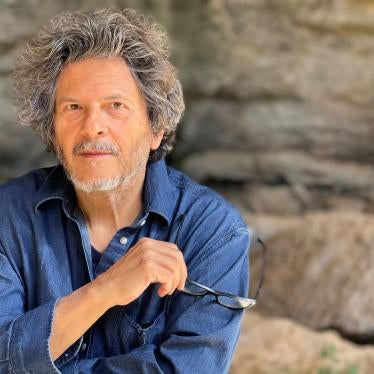Thirty-five years after the death of General Francisco Franco, Spain is finally prosecuting someone in connection with the crimes of his dictatorship, and of the Spanish civil war which came before it. Unfortunately, the defendant in the case is Baltasar Garzon, the judge who sought to investigate those crimes.
Garzon, of course, is one of the most high-profile judges in the world and what makes the case particularly ironic is that he is being prosecuted for trying to apply at home the same principles he so successfully promoted internationally.
Garzon's daring 1998 indictment of the former Chilean dictator Augusto Pinochet for crimes committed in Chile in the 1970s triggered Pinochet's arrest in London and ushered in the heyday of international justice. Many people contested the right of a judge in Spain, which had never come to grips with its own past, to open up wounds in foreign countries. But the Pinochet case inspired victims of abuse throughout Latin America to challenge transitions from dictatorship which allowed the perpetrators of atrocities to go unpunished.
These temporary accommodations with the anciens regimes did not extinguish the thirst of victims and relatives to find out the truth and to bring their tormentors to justice. International and national courts ruled that amnesties could not stand in the way of a state's duty to investigate the worst international crimes. Justice is now part of just about every transition to democracy anywhere in the world.
Then in 2008, Garzon set his sights inwards. In the last several years, a growing movement has challenged the "pact of forgetting" which was part of Spain's "model" transition to democracy, and the children and grandchildren of victims filed complaints regarding the enforced disappearances of more than 100,000 people between 1936 and 1952. Garzon took up the complaints, saying that under international law Spain's 1977 amnesty law for "political acts" could not apply to crimes against humanity, before an appeals panel ruled 10 to five that Garzon did not properly have jurisdiction. Far-right groups, including one linked to Franco's dictatorship, then accused Garzon of an abuse of power and an investigating judge has just decided to proceed against Garzon for knowingly taking on a case he knew not to be within his jurisdiction.
In his long career, Garzon has made many enemies. Conservatives are gunning for him now because he helped unearth alleged massive corruption in the financing of the opposition Popular party, but many in the Socialist party haven't forgiven him for probing government support for an anti-Eta death squad in the 1980s. The decision by the investigating judge to proceed means Garzon will soon be suspended from his duties. If he is convicted it would effectively end his judicial career.
Prosecuting a judge for issuing a controversial decision, even one overruled on appeal (in a split decision), is a dangerous attack on judicial independence. Many undemocratic rulers would love to use criminal sanctions to silence meddlesome judges. The assault on Garzon (there are two other cases against him in the pipeline) comes on the heels of the Spanish government's decision to curtail its law permitting the prosecution of foreign atrocities which had been used to indict Pinochet, convict an Argentine official for "dirty war" killings, investigate crimes in El Salvador and Guatemala and issue warrants for top Rwandan leaders.
But after cases involving powerful countries such as China, the US and Israel - for alleged crimes in Tibet, Guantanamo and Gaza - created headaches for the Spanish government, both major parties agreed that the law would be limited.
Thanks to Garzon, Spain became a symbol of justice for atrocity victims around the world. Now justice itself may be the victim in Spain.
Reed Brody is counsel for Human Rights Watch and was a lawyer in the Pinochet prosecution







